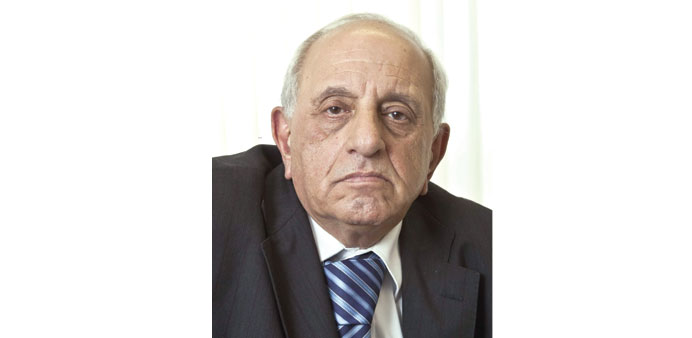Dr Michel Alaby, general secretary and CEO of the Arab-Brazilian Chamber of Commerce.
Food exports from Brazil to Arab countries reached a record high of 17mn tonnes in 2013 with meat, sugar and cereals as the predominant products, according to the Arab-Brazilian Chamber of Commerce.
Brazilian meat topped the list at more than $4bn, a 3% increase in value compared to 2012 with sales volume touching 2mn tonnes in 2013. This, the Arab-Brazilian Chamber of Commerce’s latest annual report said, represents more than 10% of Brazilian exports to the region.
‘Frozen chicken cuts’ contributed the most to the “robust” Brazilian export figures, accounting for 15% of the total food and other items traded with Arab countries in 2013. Exports of this product rose 11% to reach $2.1bn, which also reflects the “exceptional” ability of Brazil’s Halal certification agencies to ensure that all food products match Islamic standards. The category of “other sugars” from sugar cane, beets, sucrose’ comprised 9% of total exports, cornering 26% of volumes to reach 2.7mn tonnes and 3% in value at $1.2bn.
Corn accounted for 9% of the total value with a 7% increase to reach $1.2bn and a 25% gain in volume at 5.3mn tonnes.
Dr Michel Alaby, general secretary and CEO of the Arab-Brazilian Chamber of Commerce, said: “The trade balance for 2013 shows a greater refinement of Brazilian products exported to Arab nations. The products have tremendously gained in intrinsic value from being sold in bulk to individual packages aimed at the final consumer. This shows that Brazilian traders have improved their quality while adding on to the product value.
Companies exporting refined sugar, for instance, have obtained Halal certification, branded their packaging, and now provide label information in Arabic. We have also noticed a greater level of professionalism from Brazilian companies in terms of meeting international standards and stepping up exports.”
He said that though there was an evolution of Brazilian products, there was a greater need to further diversify food exports. The top 10 Brazilian products comprise more than 80% of the total amount traded while chicken, sugar and ore have a 41% share.
“This highlights a latent business opportunity for Brazil with Arab countries which needs to be tapped further,” Dr Alaby added.
Dairy products saw the most significant increase for 2013 over 2012. Condensed milk increased 38% in value and 33% in amount traded while whipping cream grew by 3% in value and 5% in amount traded. In the fruit and vegetables category, ‘lemons and limes’ gained 33% in amount and 32% in volume and ‘fresh melons’ a healthy increase of 6,000% and 4,000%, respectively. Finally, ‘other types of regular beans’ gained 84% in amount and 101% in volume.
The UAE is the biggest commercial partner for Brazil among Arab countries, with its total imports growing over 5% to reach $2.5bn. Trade relations with Libya bounced back in 2013 with a total increase of 20%. Algeria also saw a significant boost in Brazilian exports.

